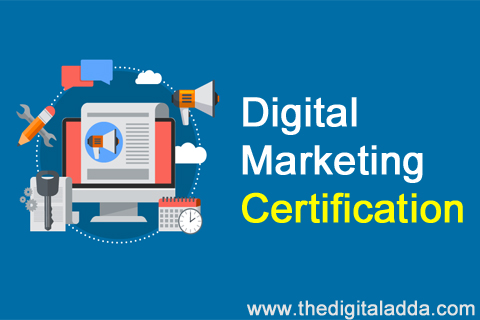Digital Marketing FREE Certification – The Digital Adda
Digital marketing is a broad and dynamic field that encompasses all marketing efforts conducted through digital channels and technologies to promote products, services, or brands to a target audience. It leverages the internet and electronic devices to connect with potential customers where they spend their time online. Digital marketing encompasses various strategies and channels. Here are the key components of digital marketing:
1. Search Engine Optimization (SEO):
- SEO focuses on optimizing websites and content to improve their visibility and rankings in search engine results pages (SERPs). It involves keyword research, on-page optimization, backlink building, and technical SEO.
2. Content Marketing:
- Content marketing involves creating and sharing valuable and relevant content to attract and engage a target audience. Content types include blog posts, articles, videos, infographics, podcasts, and more.
3. Social Media Marketing:
- Social media marketing utilizes social media platforms (e.g., Facebook, Twitter, Instagram, LinkedIn) to build a brand’s online presence, engage with followers, and promote products or services.
4. Email Marketing:
- Email marketing involves sending targeted emails to a list of subscribers or customers. It’s used for newsletters, promotional offers, customer nurturing, and more.
5. Pay-Per-Click Advertising (PPC):
- PPC advertising, often on platforms like Google Ads and Bing Ads, allows advertisers to bid on keywords and pay for ad placement in search engine results or on websites. Advertisers are charged only when a user clicks on their ad.
6. Display Advertising:
- Display ads are graphical or visual advertisements placed on websites or apps. They can be in the form of banners, videos, or interactive content.
7. Affiliate Marketing:
- Affiliate marketing is a performance-based marketing model where businesses reward affiliates (partners) for driving traffic or sales through their marketing efforts.
8. Influencer Marketing:
- Influencer marketing involves partnering with individuals or influencers in a specific niche to promote products or services to their followers.
9. Social Media Advertising:
- Paid advertising on social media platforms involves creating and promoting ads to specific demographics, interests, or behaviors.
10. Content Marketing Automation: – Marketing automation tools are used to streamline and automate repetitive tasks such as email marketing, lead nurturing, and social media scheduling.
11. Analytics and Data Analysis: – Analyzing data from various digital marketing channels to measure performance, make data-driven decisions, and optimize marketing strategies.
12. Mobile Marketing: – Tailoring marketing strategies and content for mobile users, including mobile apps, SMS marketing, and mobile-responsive web design.
13. Video Marketing: – Utilizing video content to engage and inform the audience. This includes YouTube marketing, live streaming, and video ads on social media.
14. Voice Search Optimization: – Optimizing content and websites for voice search as the use of voice-activated devices continues to grow.
15. Chatbots and Conversational Marketing: – Implementing chatbots and AI-driven conversational marketing tools to engage with users in real-time on websites and messaging apps.
Digital marketing is dynamic and ever-evolving, and staying current with industry trends, technology advancements, and consumer behavior is crucial for success. Effective digital marketing strategies involve understanding the target audience, setting clear goals, tracking performance, and continuously optimizing campaigns to achieve desired results and ROI.
Digital Marketing FREE Online Course with Certificate
